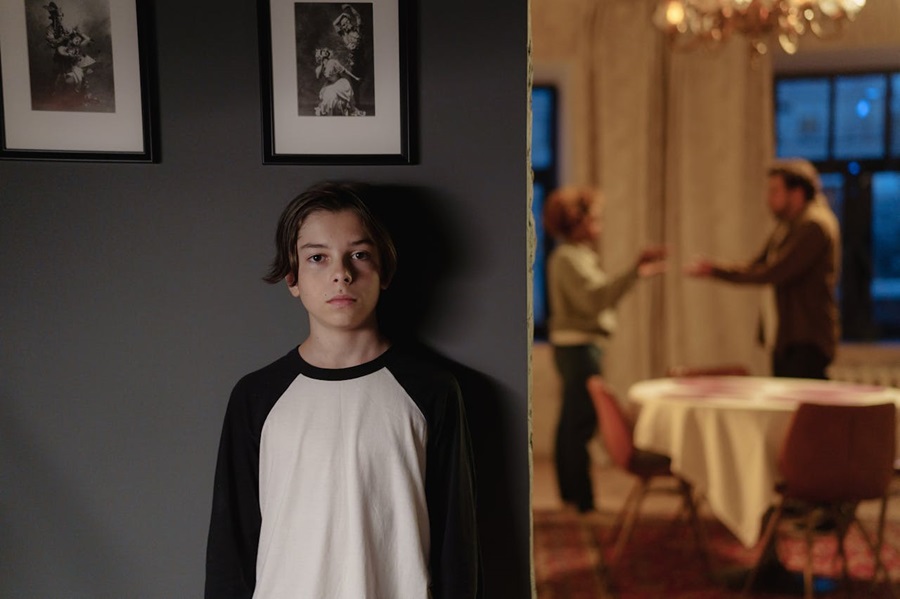How to get a domestic violence protection order?

Domestic violence often remains concealed behind closed doors, where fear maintains control over victims’lives. In the UK, a Domestic Violence Protection Order (DVPO) serves as an essential legal instrument designed to provide immediate protection to victims experiencing abusive behaviour. Seeking guidance from a solicitor who specialised in domestic violence cases ensures your rights are protected and safety prioritised throughout the process.

Key Takeaway: How to obtain a DVPO to protect yourself?
This guide walks you through each essential stage of the process.
What is a Domestic Violence Protection Order (DVPO)?
A Domestic Violence Protection Order (DVPO) is a temporary legal measure available in the UK, specifically designed to provide swift protection to victims of domestic abuse. Its primary purpose is to ensure immediate safety to individuals who have been subject to abusive behaviour, particularly whilst they await longer-term court proceedings.
The DVPO meaning encompasses a court order that prohibits the individual named from:
- Contacting or approaching the victim.
- Harassing or intimidating them.
- Entering the victim’s home or a specified area around it.
How long does a DVPO last?
The maximum duration is 28 days, during which the victim receives effective protection and can access appropriate support services.
What is the difference between DVPN and DVPO?
It is crucial to understand the difference between DVPN and DVPO:
Domestic Violence Protection Notice (DVPN):
- Issued immediately by police at the scene.
- Valid for up to 48 hours.
- Provides immediate emergency protection.
- Does not require court approval.
Domestic Violence Protection Order (DVPO):
- Granted by a magistrates’ court.
- Lasts up to 28 days.
- Stronger legal force.
- Requires court hearing and judicial approval.
What is the difference between a DVPO and a Restraining Order?
A Restraining Order is a longer-term court order designed to prevent an individual from contacting or approaching another person, typically following criminal proceedings or family court cases. Unlike a DVPO, which is a temporary emergency measure, a Restraining Order can last for several months or even years.
Key differences include:
- Duration: DVPOs last up to 28 days, whereas Restraining Orders can be indefinite.
- Context: DVPOs provide immediate protection following domestic violence incidents, usually requested for by the police. Restraining Orders often follow criminal convictions and may form part of sentencing.
- Procedure: A DVPO is granted quickly by a magistrate based on police application, while a Restraining Order requires a formal court hearing where both parties can present evidence.
How to obtain a Domestic Violence Protection Order (DVPO)?
Obtaining a DVPO involves several important steps, starting with police involvement and ending with a court decision.
Steps to request a DVPO
Step 1: Contact the Police: Report the domestic abuse incident to the police. They will assess the situation and evaluate the risk to your safety.
Step 2: Risk Assessment by Police:
Police conduct a thorough evaluation using standardised risk assessment tools to determine whether a DVPO is necessary to protect the victim. This involves gathering evidence and considering the immediate threat level.
Step 3: Application to the Court:
If the police determine protection is required, they apply to the magistrates’ court for a DVPO. Applications are usually made within 48 hours to ensure swift protection.
Step 4: Court Hearing:
A magistrate reviews the case at a hearing. The alleged perpetrator has the right to attend and contest the application. Both police and the respondent may provide evidence. The magistrate decides whether to grant the DVPO based on the balance of probabilities.
What happens once a DVPO is granted?
Once granted, the respondent is legally bound to comply with the DVPO’s terms. Police enforce these restrictions, and any breach constitutes a criminal offence under Section 63S of the Magistrates’ Courts Act 1980.
The DVPO creates immediate legal protection whilst allowing time to:
- Access support services.
- Seek legal advice.
- Apply for longer-term protective measures.
- Plan for future safety.
What happens when a DVPO expires?
What happens when a DVPO expires is a critical consideration. Since DVPOs last maximum 28 days, victims must plan for continued protection before expiry. Options include:
- Applying for a Restraining Order through criminal proceedings.
- Seeking a Non-Molestation Order in family court.
- Applying for an Occupation Order if housing is disputed.
- Working with support services to develop a safety plan.
What are the consequences of a DVPO breach?
A DVPO breach is a serious criminal offence carrying significant penalties.
If the person subject to the DVPO breaches any condition:
- Contacting the victim directly or indirectly.
- Returning to prohibited premises.
- Approaching within specified distances.
- Violating any other order conditions.
They face:
- Immediate arrest without warrant.
- Up to two months imprisonment.
- Fine up to £5,000.
- Strengthened case for further protective measures.
Do I need a solicitor to obtain a DVPO?
While the police apply for DVPOs on behalf of victims, having a solicitor experienced in domestic violence cases provides valuable support:
- Advise on your legal rights and options.
- Explaination of court processes.
- Representation at hearings if permitted.
- Assistance preparing supporting evidence.
- Help applying for follow-on protective measures.
- Guidance on what happens when a DVPO expires.
Legal representation is particularly recommended in complex cases or when the respondent contests the order.
FAQs
Can children be protected under a DVPO? While a DVPO primarily protects the named victim, courts consider children’s welfare when granting orders. Additional measures through family courts may be necessary to specifically protect children, including Child Arrangements Orders or Emergency Protection Orders.
Does a DVPO affect immigration status? Obtaining a DVPO does not directly affect immigration status. However, evidence of domestic abuse can support applications for victim support visas or other immigration relief.
Can a DVPO be challenged or appealed? Yes, respondents can challenge DVPOs by applying to the magistrates’ court for variation or discharge. They must demonstrate changed circumstances or that the order is no longer necessary.
Obtaining a Domestic Violence Protection Order is a vital step to ensure your immediate safety when facing danger. Understanding the process and knowing your rights enables you to act swiftly and effectively.
Take action to protect yourself!
Contact the police or a specialist family law solicitor listed on Qredible’s network to begin the legal process for protection.
KEY TAKEAWAYS
- A DVPO provides essential, immediate but temporary protection lasting up to 28 days.
- Police play the central role in applying for and enforcing DVPOs.
- A DVPO breach is a serious criminal offence with immediate consequences.
- Legal representation supports understanding of rights and court representation.
Articles Sources
- gov.uk - https://www.gov.uk/domestic-violence-protection-notices-and-orders
- cps.gov.uk - https://www.cps.gov.uk/legal-guidance/domestic-violence-protection-orders
- womensaid.org.uk - https://www.womensaid.org.uk/information-support/what-is-domestic-violence/domestic-violence-protection-notice-and-order/
- citizensadvice.org.uk - https://www.citizensadvice.org.uk/law-and-courts/legal-system/special-rules-in-the-courts/domestic-violence-protection-orders/
- refuge.org.uk - https://www.refuge.org.uk/get-help-now/what-is-domestic-violence/domestic-violence-protection-order-dvpo/
Do you need a solicitor?
Find a solicitor on Qredible in just a few easy steps




















